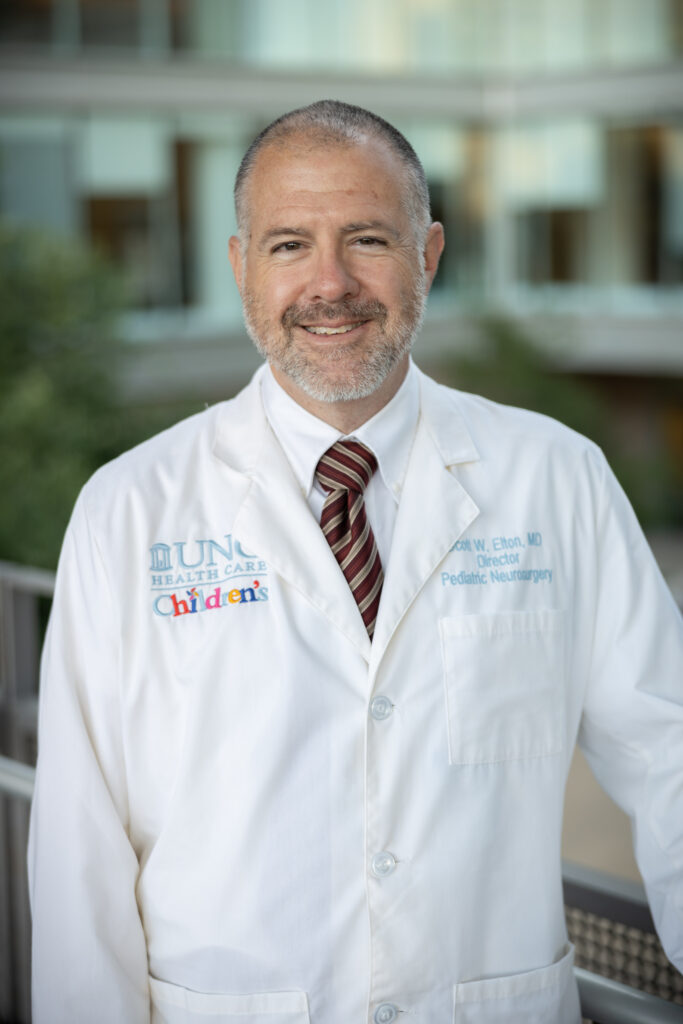

Scott Elton, MD, FAANS, FAAP
Children’s Hospital Surgeon-in-Chief
Division Chief and Director of Pediatric Neurosurgery
Professor
Craniosynostosis is a condition that occurs when one or more of the sutures of an infant’s skull fuse together too early, sometimes before they are born. This can impact the shape of a child’s head, social development, and potentially brain development. The cause of Craniosynostosis is unknown, but may be part of a genetic syndrome. Typically, the symptom of craniosynostosis is abnormal head shape.
Generally, only one suture is affected, however, multiple suture synostosis can occur. Sometimes diagnostic imaging, such as x-ray or a CT scan, is used to look at the closed sutures, but not every patient will need imaging.
Although rare, serious neurological damage can occur in untreated cases with multiple suture involvement. In most cases, craniosynostosis is primarily corrected surgically so that children have normal appearance and therefore social development (making friends, building relationships, ability to get a job).
If diagnosed and treated early, children with craniosynostosis can have normal cognitive development and head shape. UNC Pediatric Neurosurgery works closely with pediatricians and specialists to diagnose craniosynostosis and develop the right treatment plan for each child.
Plagiocephaly is the most common cause of head shape abnormalities in children. Children will often prefer to lay on one side of the head causing flattening and head molding. If there is neck tightness (torticollis) this makes the issue worse, and requires physical therapy. Most children with plagiocephaly will improve their head shape when they are more upright as they age. Very few children require a molding helmet.
UNC Pediatric Neurosurgery provides craniosynostosis surgery and works in conjunction with the craniofacial team at UNC. Our pediatric neurosurgeons evaluate and treat approximately 75 children with craniosynostosis every year.
Cranial vault remodel for craniosynostosis is performed at six months to one year of age to relieve pressure on the brain, to make room for the brain to grow, and to correct the shape of the skull. Our pediatric neurosurgeons work with a craniofacial surgeon to reshape the bones of the skull to create space for the child’s growing brain. A craniofacial surgeon can create a more natural head shape for the child, so no helmet will be required after surgery.
Endoscopic craniectomy is a minimally invasive procedure that is used to treat craniosynostosis in infants under three months old. Because this procedure is minimally invasive, patients are typically discharged within 24 hours of surgery. Children’s skulls are remodeled over time with the help of a molding helmet for ideal head shape after the suture is released surgically.
We offer weekly pediatric neurosurgery clinics in Chapel Hill, Raleigh, Pinehurst, and Wilmington. Visit our pediatric neurosurgery clinic locations page for the clinic or hospital nearest you or call 919-445-2410 to schedule an appointment.


Children’s Hospital Surgeon-in-Chief
Division Chief and Director of Pediatric Neurosurgery
Professor